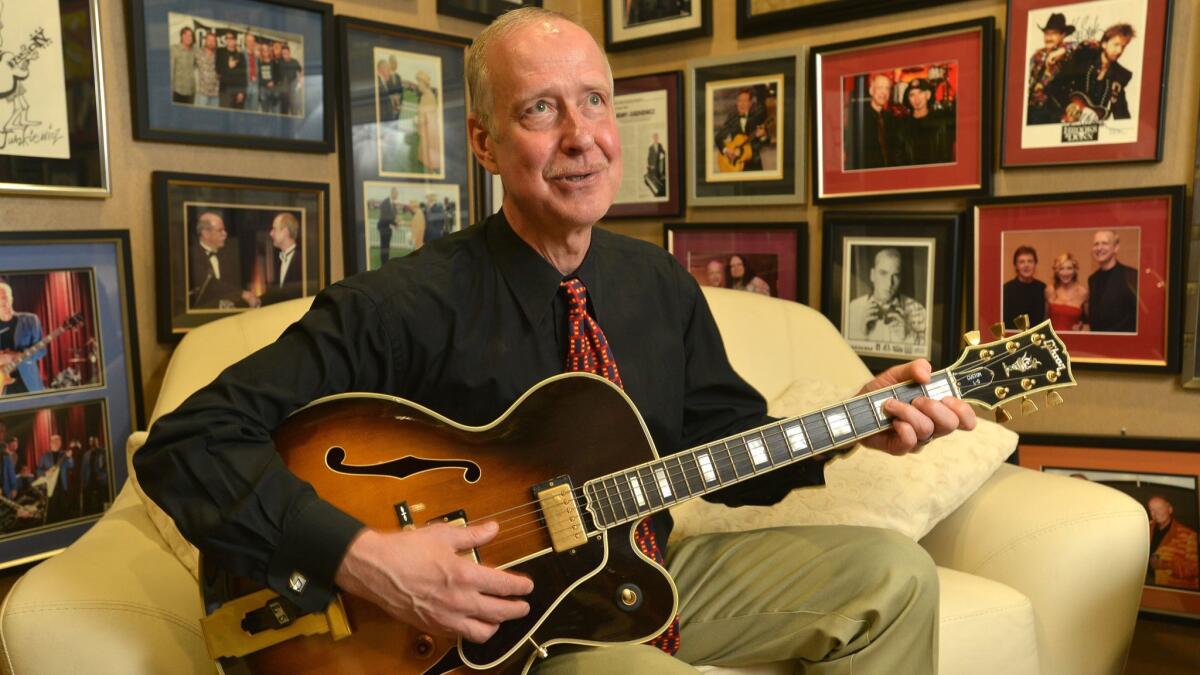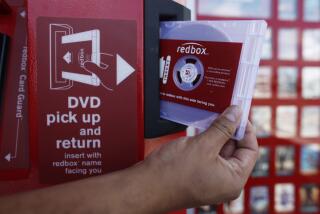Gibson files for bankruptcy, planning to renew its guitar business and dump its ‘innovations’ unit

Gibson Brands Inc. filed for bankruptcy with a turnaround plan that will give some of the company’s lenders equity ownership of the iconic American business that has supplied guitars to B.B. King, Elvis Presley and Pete Townshend.
A restructuring support agreement with senior secured noteholders will help it repay bank loans while going through a “change of control” transaction, according to papers filed Tuesday with its Chapter 11 bankruptcy in Delaware. The petition estimated up to $500 million in debt, and the lenders have agreed to an operating, or “debtor in possession,” loan of up to $135 million to fund operations.
The change in control will give noteholders equity in a new company, replacing current stockholders such as Chief Executive Henry Juszkiewicz. According to court filings, current noteholders include Silver Point Capital, Melody Capital Partners LP, and funds affiliated with KKR Credit Advisors. The restructuring will also allow the instrument business to “unburden” itself of a consumer-electronics unit that Gibson blamed for its financial woes.
Juszkiewicz, who has found himself at odds with creditors in recent months, will continue with the company upon emergence from bankruptcy “to facilitate a smooth transition,” according to the agreement. Court papers call for a one-year consulting deal and compensation package for Juszkiewicz. A representative for the company didn’t respond to questions about whether Juszkiewicz will remain as CEO or in a separate role.
Failed diversification
Gibson, founded in 1894, sells more than 170,000 guitars annually in 80 countries. Its guitars are U.S.-made, with factories in Nashville; Memphis, Tenn.; and Bozeman, Mont. It also sells studio monitors, headphones, turntables and other musical instruments. Units also include the company’s Baldwin Piano business. All told, the music instruments business employs at least 875 people, according to court papers.
Its Gibson Innovations business, acquired in June 2014 from Koninklijke Philips NV, was the source of its financial woes, according to a court statement from Brian J. Fox, a managing director at Alvarez & Marsal who will serve as the company’s chief restructuring officer. Acquired through a leveraged transaction, the business faced significant sales declines due in part to a loss of credit insurance overseas. The unit will be wound down, Gibson said.
‘Exit path’
With the noteholder agreement, the company has “an exit path from Chapter 11 as a deleveraged business, poised for continued growth,” Fox said in the filing.
Fox described the electronics business as having become “trapped in a vicious cycle in which it lacked the liquidity to buy inventory and drive sales.” Cross-defaults had threatened the musical instruments business, and the company has been working with advisors since last fall to try to solve the problem.
Before the filing, Gibson reached an arrangement with major constituents to its musical instruments business but not the consumer electronics business, Fox said.
UPDATES:
1:55 p.m.: This article was updated with information about CEO Henry Juszkiewicz’s future, details about Gibson’s music instruments business, and Gibson’s plan to wind down its Innovations unit.
This article was originally published at 7:15 a.m.
More to Read
Inside the business of entertainment
The Wide Shot brings you news, analysis and insights on everything from streaming wars to production — and what it all means for the future.
You may occasionally receive promotional content from the Los Angeles Times.










